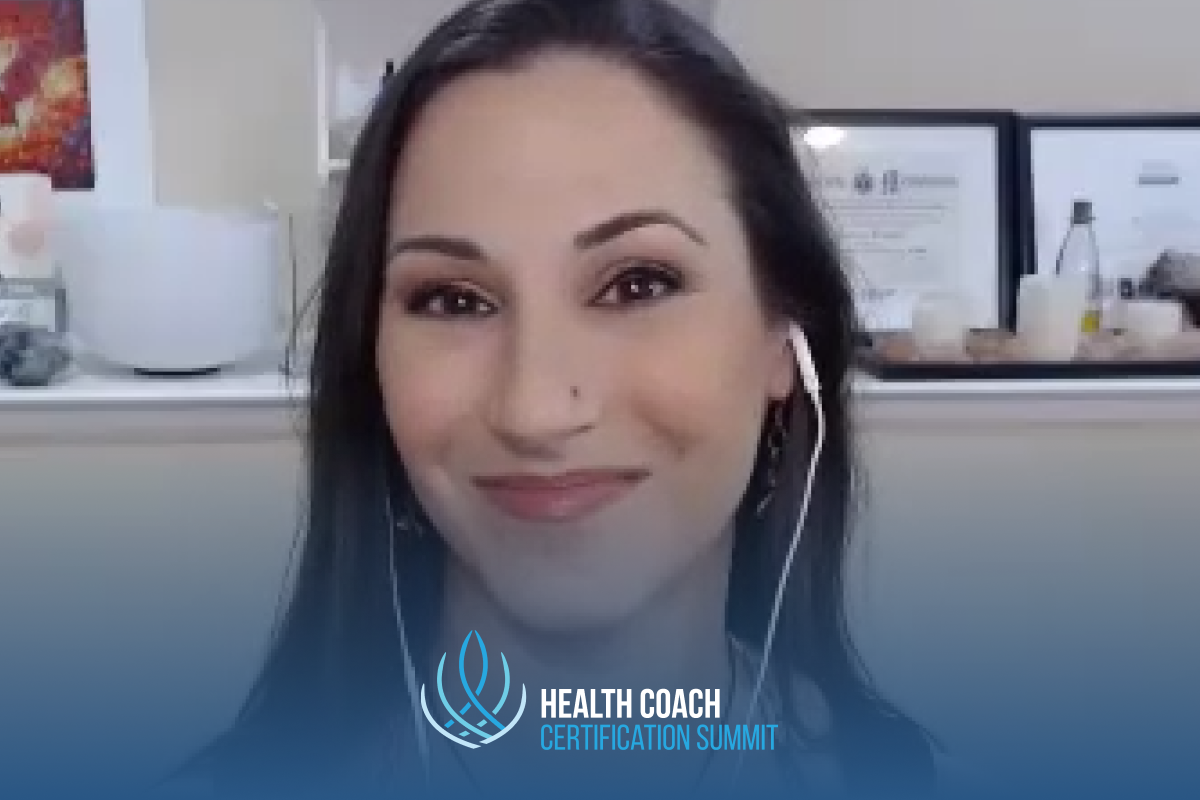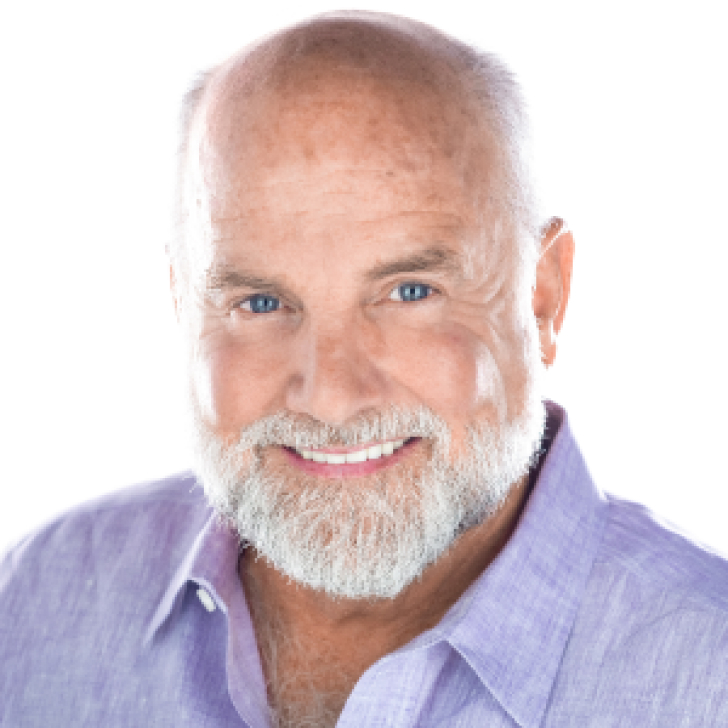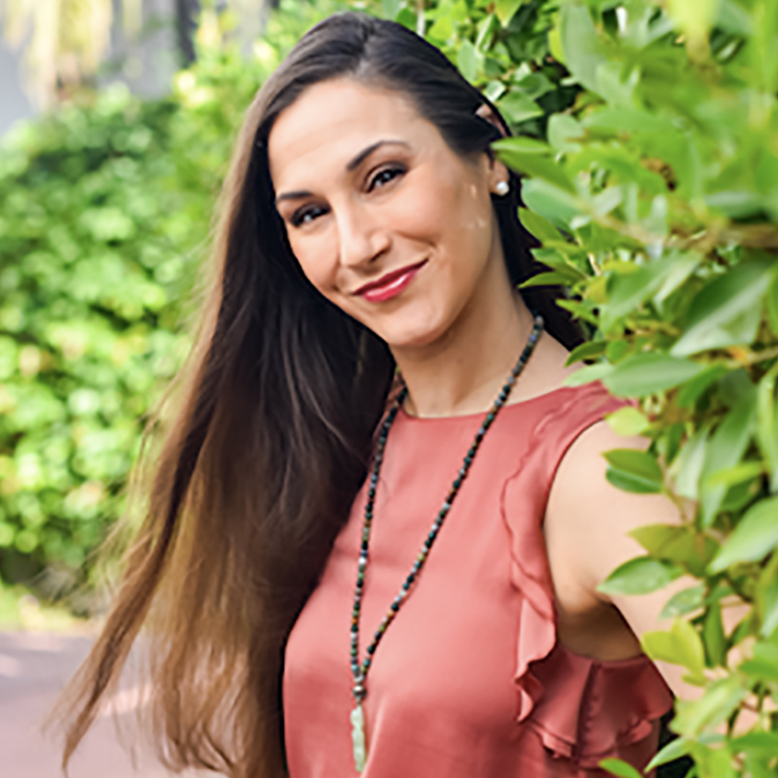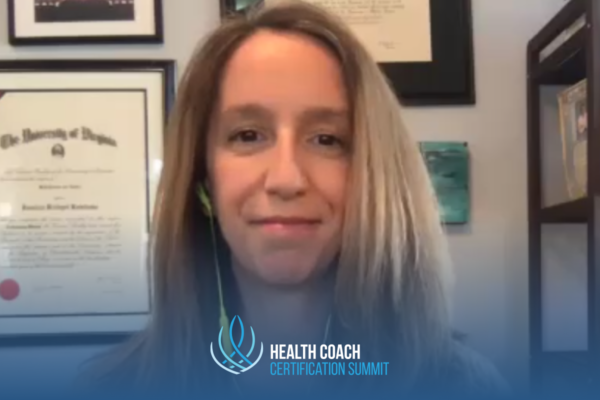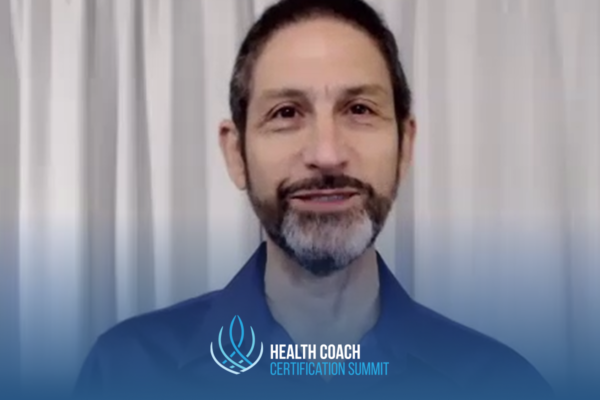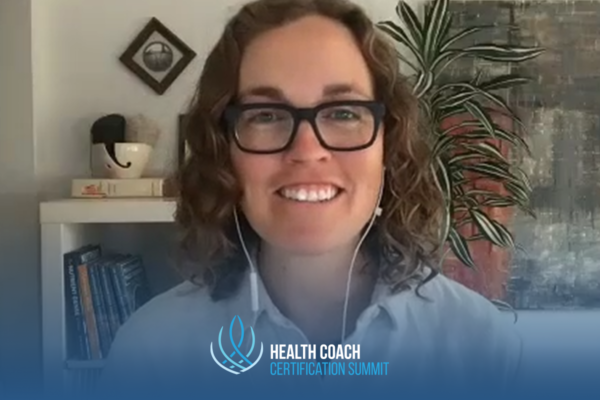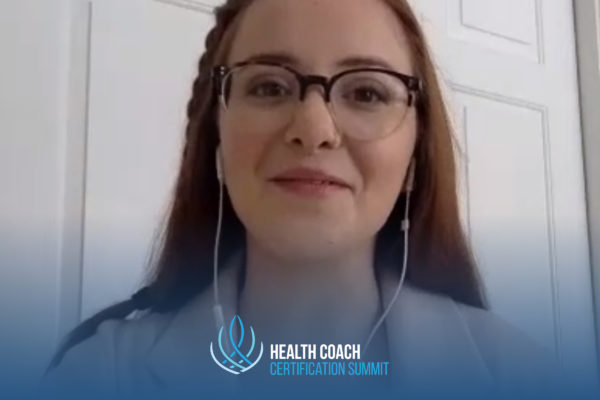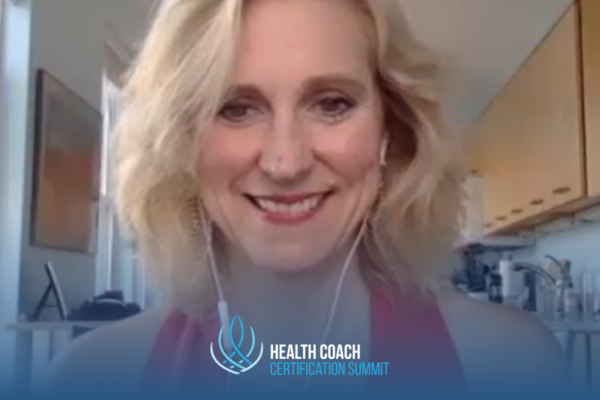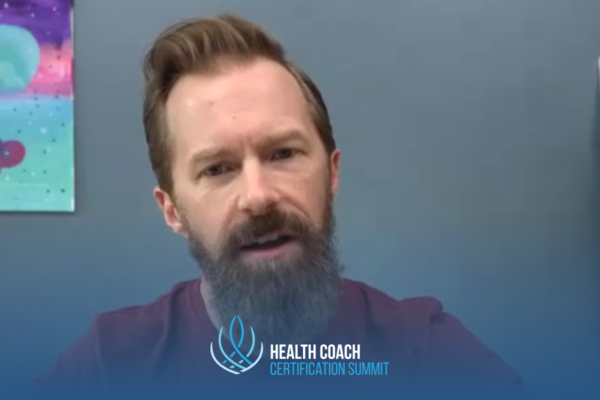Join the discussion below
A Certified Nutritional Aesthetics Practitioner® (CNAP) is a well-rounded skin wellness practitioner, who supports clients with an integrative approach to healthy skin through healthy food and lifestyle choices, bio-individualized topical skincare recommendations, and mindset modification. The CNAP Training Program draws from diverse areas of study to create a well-rounded, inclusive foundation for the practice of Nutritional Aesthetics®, which aims to advance an integrative approach to healthy skin. The curriculum is rooted in principles of alternative, complementary, and conventional medicines, including integrative dermatology, aesthetics, coaching, Ayurveda, and East Asian Medicine, among many other evidence-based modalities in alignment with the Nutritional Aesthetics® philosophy and mission.
Related Topics
Aging, Beauty, Certified Nutritional Aesthetics Practitioner, Health Coaching, Nutrition, Skin HealthReed Davis, HHP, FDN-P, CMTA, CNT
Welcome back ladies and gentlemen. I’m so glad you’re here today to meet Rachel Feldman Pontillo. She’s a holistic skincare innovator, author, and great educator. She’s also a healthy skin media expert and has been featured on Byrdie, Insider, Yahoo Health, today.com, and has appeared on ABC, Center News, and Fox. She’s just very, very, very popular and we’re, I think, very lucky to have her here today. She’s the bestselling author of the book Love Your Skin, Love Yourself, the nutritional aesthetics practitioner foundational curriculum textbook. And she’s the co-author of The Source Code and is the host of The Rachel Feldman Pontillo Show, which is a podcast. Rachel Feldman is a functional nutrition practitioner, she’s with the organization I love: The American Association of Drugless Practitioners and the International Association of Health Coaching. She’s board certified by them.
She’s a licensed aesthetician and natural skincare formulator. And again, she’s a wonderful educator and we’re glad to have her here today. She’s gonna talk about skin obviously, and some other things. I want you to know a little bit more about her background, and then I’m gonna turn it over to Rachel Feldman and she’ll fill in any blanks or answer some questions. She’s the president and cofounder of The Nutritional Aesthetics Alliance—I want to hear about that— and creator of its certified nutritional aesthetics practitioner training program, that’s the certification and why we invited Rachel Feldman on today. I just think it’s wonderful that there’s a coaching program for everybody, ’cause we all want to help people, but we all kind of have our little way, the thing we like best.
She’s also the creator of the popular skincare and healthy lifestyle blog, Holistic Haute [Laughing], as well as the much loved create your skincare online courses, including the exclusive skin sequencing method. And last but not least, Rachel Feldman also holds additional certifications in metaphysical science—can’t wait to ask some questions about that. Detoxification, cosmetic chemistry, acupressure, Reiki, medical chigong, Chinese facial diagnosis, and Ayurveda. Well, of course you have to have Ayurveda in there, right? Now she’s a homeschooling mama, avid herbalist skincare ingredient connoisseur, and a lifelong learner—as we all are kind of learn freaks, that’s why we’re here, right? So Rachel Feldman, love your bio, love you. We had a little talk before we started recording and welcome to the program and, you look like a skin expert! There’s just something about you.
Rachel Feldman
Thank you. I better!
Reed Davis, HHP, FDN-P, CMTA, CNT
You’re welcome. You better, you better. You gotta walk the talk, right? So tell us a little more about your background. I gave the one side of it. What got you into this?
Rachel Feldman
Well, first of all, thanks for having me. I’m excited to be here and yeah, so we’re definitely gonna talk about skin. My background in skin started really out of necessity. I’m someone who struggled with acne for pretty much my entire life, starting at age 10, all the way up until my mid thirties. It was a really frustrating process when I was a kid. Obviously I only knew to try what the teen magazines were talking about in terms of products or what was sold at the drug store, the local drug store. In my teenage years, I did go the medical route. I went on antibiotics, had a couple of steroids prescribed to me at one point, had to get 11 cortisone injections in my face, which was really not fun for me or my mother. I had really just about tried everything, whether it was a spa product, a medical product, an over the counter product, even handmade concoctions that my mom would make with like crushed up vitamins and yogurt and stuff like that, nothing worked.
There would be times that I would go on a product line and it would improve the situation. But whenever I would run out of product, the breakouts would come back, and then there would be times that the product itself would just stop working after a while, which is something that I know a lot of people struggle with. So, it wasn’t until many years later that I went back to school to get my aesthetics license. The reason I did that is because, when my two kids, I have two daughters, when they were little, it was always an agreement that my husband and I had that I would go back to work when they were both in school. I had never really figured out what I wanted to do before I had my kids. I have a degree in architecture that I never used professionally.
Reed Davis, HHP, FDN-P, CMTA, CNT
Wow. Yeah.
Rachel Feldman
Then I always had various sales and marketing jobs when I was in my twenties, and then I had the kids and I’m like, “Oh, I’ll just go back to school again later”. So when it got to be that time, I was like, “Well, I don’t know what I want to do because I don’t want to just go get another sales job somewhere”. So I was thinking, “Well, what could I do that I could be flexible?” Because I still wanted to be available for my kids. I wanted to do something that I actually cared about. So a friend of mine who was a nail tech, she said, “Well, why don’t you do makeup?” Because that was actually something I did when I was a teenager for extra money. That was something that I got into again, out of need, to cover the acne.
So it was something that I had a decent amount of skill with. So I thought, “Well, I could do that”, but I wasn’t sure if I was allowed to legally, if there was a license that I had to get. So she said, she honestly didn’t know, but she suggested looking into an aesthetics program because estheticians can do makeup. Cosmetologists can do makeup. So I found that in Pennsylvania an aesthetics program was pretty reasonably priced. I could do night school and finish it in six months time. So I did that program and I was all excited to maybe go get a job as an aesthetician, but unfortunately in Pennsylvania you have to either own your own spa or you have to be an employee of somebody else’s. You can’t just rent a room somewhere like you can in other States.
What I found that was really frustrating was that the spas here, in the Philadelphia area, at the time and still kind of now, were not as holistically-minded. In my aesthetics program, I was really fortunate to learn from Ayurvedic doctors and other teachers who were holistically-minded. So while we did learn the more medical type procedures, like the microdermabrasion and the chemical peels, we also did a lot with things like acupressure massage. We talked a lot about anti-inflammatory herbs and customizing protocols for individuals based on their Ayurvedic Dosha or their constitution. So I really had that holistic perspective right there out of school. But when I went to find a job, everybody was doing the conventional stuff. For me, I didn’t like the way people’s skin felt under my fingers after having too many of those procedures done, it just didn’t feel in alignment for me. So I figured, “I’m gonna have to kind of create my own opportunity”. So I started my blog in 2010 and I figured, “Let’s just see what happens!” So I started writing about holistic skincare and at the time, really nobody else was writing about it in the way that I was. So I started attracting the attention of some of the aesthetics journals and professional organizations who asked me to write for them.
So, I did, and then I just continued writing. I started my first health coaching program because I had also gained a significant amount of weight after my second pregnancy and had developed some associated health conditions with that. I had subclinical hypo thyroid issues. I had high cholesterol. I was pre-diabetic, had some mental health issues as well. I was just really not feeling great about myself. So after five years of not having any luck with conventional diets, personal trainers, any of that, I found this book that talked about things that, at the time, were kind of radical. Things like green smoothies and lemon water and food combining. That was just not what any of the conventional diets were talking about and it seemed kind of preposterous enough that, “Hey, might as well!”
So fast forward on that, after one month of only making the changes of adding green smoothies, eating more vegetables, drinking lemon water in the morning, and taking a probiotic, I dropped 20 pounds and my skin cleared up completely to the point that when I would run out of a product, the breakouts stayed gone. So that’s when I made the connection of, “Oh, okay. There is really this connection between what you eat and what shows up on the surface of the skin”. But it wasn’t until I was doing the practicum part of my first health coaching program that I did, that when I was working with other clients who started having the same types of results that I had, that’s when I really made the connection that, “Okay, there is something to this here”.
Reed Davis, HHP, FDN-P, CMTA, CNT
Yes.
Rachel Feldman
But what frustrated me was that a lot of the wellness blogs at the time, and a lot of the nutritionists who were talking about skin, were only talking about it from the inside out. They were only talking about eating healthy and doing the mindset work and the lifestyle, which is so important. Obviously we have to do that. We have to have healthy gut, healthy hormones, all of those things in place for good skin to actually happen. But because it was clear that there was not aesthetic training involved, there was really not a lot being written about how to care for the skin on the outside. We do need to do that because even though the epidermal cells themselves, that we see on the surface are “dead”, we do have to look at the skin as an organ that is integrated with every other organ and system in the body. It does not exist separate from the gut, from the brain, from the liver.
Now more than ever, we’re seeing these connections, the gut-brain-skin axis. There’s an axis between the thyroid, the liver and the melanin production that we see. There’s all these different pathways that are very skin specific. Melanin production, especially, that does happen in the epidermis. That does not happen in the dermis. So that actually is within the scope of aesthetics and cosmetics that we can say that we need to support healthy melanin production. Obviously we’re not gonna be making any structure function claims, but the scope of practice for an esthetician and a scope of efficacy for cosmetics has to do with the epidermal layers. It does not, and cannot, talk about the dermis or below that.
Reed Davis, HHP, FDN-P, CMTA, CNT
Okay.
Rachel Feldman
So, if we do our job by nourishing, hydrating, and protecting the skin on the outside and supporting those functions without interfering with them without suppressing them, and we do what we need to do on the inside and also in the mind to make sure that everything is conducive to healthy skin cells being produced on the inside and that the blood that’s nourishing those STEM cells is carrying the right quality of nutrients and all of that. So those cells can form and be resilient as they rise to the surface. That is how we get the best results. So once I really started making that connection, seeing the results duplicated client, after client, after client, then I took a functional nutrition program—I actually took your program—continued with more herbal studies, aromatherapy studies, continued experimenting myself with skincare formulation, learning more about cosmetic chemistry and what exactly happens when certain ingredients come into contact with the skin, what gets absorbed, what doesn’t, all of that stuff and putting it together.
That’s when I came up with this idea of nutritional aesthetics, which for me, just the most basic description is advancing an integrative approach to healthy skin and really looking at what individual people need based on where they’re at in their journey. Not just what they see on the surface, but also what is going on with the rest of their lives that have led to what has shown up on the surface. So that’s what my practice was, when I had my full time practice. Then I shifted into more of the role as an educator. I have the skincare formulation course. I also have the certified nutritional aesthetics practitioner training program, which I’m really proud of. It’s been extremely well received. Feedback has been incredible. We just closed our pilot cohort and my students are now in the midst of their practicum. It’s really exciting. Then we’ll be back live again, starting in September.
Reed Davis, HHP, FDN-P, CMTA, CNT
Amazing.
Rachel Feldman
Nine months of curriculum in a three month practicum.
Reed Davis, HHP, FDN-P, CMTA, CNT
That’s an amazing story. It’s a true hero’s journey and you’ve shown yourself to be a true pioneer because you didn’t just go learn this in a weekend or two, or 10. You’ve lived it and you’ve really helped people. That’s what—my program, as you know, it’s all about the experience. It all came out of experience. It’s scientific, there’s all the anatomy, physiology, biochemistry, which you’re obviously really familiar with, but you’ve really honed it into a unique education and way of looking at things. Combined with the course it’s just natural wellness, natural health and wellness. It’s true, you can’t be beautiful on the outside if you’re not sort of healthy and beautiful on the inside.
There’s that other skill and knowledge about that special area of the skin that you obviously have. I just can hear it in your voice and in your background that you’re a real pioneer and you really care about what you’re doing and I’m sure you’re a great teacher. I wanted to save talking about your courses towards the end a little bit, but I could—I’m just starting to see the number of people that could take advantage of this, ’cause if you’re helping—if you’re a health coach, you want to help clients, a lot of them, their main complaint might be their skin. So if you don’t know anything about it, ’cause what we typically fall back on is, “Well, you have to get beauty on the inside first, you gotta be healthy and get the gut and the digestion and the detoxification. You get all that working and your skin will just naturally get better”. Well, that’s true to an extent, right? Tell us a little bit more about why that’s not enough.
Rachel Feldman
Yeah. So, here’s the thing with that: yes, we need to do all of those things and it’s an ongoing process, but it can be a long time for some people before they actually do see a noticeable result. So why not give them both? Why not give them all of that stuff with the nutrition and movement and mindset and all of that stress management, all those important things, but at the same time for so many people, they look in the mirror every single day, several times a day, they catch their reflection as they walk past a shop window or even a window in their own home. Very often your own reflection is the first thing you see in the morning and the last thing you see before you go to bed. So if you’re not able to feel somewhat like you’re doing something to improve what you’re seeing on the surface, while you’re doing all this other work, it can be a little bit counterproductive and demotivating.
So I really encourage my students to first work with their clients, obviously you want to do a really thorough intake to identify what the priorities are because sometimes a person’s skincare routine and their hygiene practices are really getting in the way of what results they could possibly get. They could be doing everything right on the inside. They could be getting the right amount of sleep. The gut is in check. They are meditating to the point that they can levitate. Everything is just beautiful. But then, they’re using really low quality products that might actually be introducing toxicants into their body, which is counterproductive, or they could be using something that is just not the right blend of ingredients for their unique skin, which might also be getting in the way of results. So if someone is—and I see this a lot, where people feel like, “I eat clean, I get sleep. I’m not stressed. My relationships are great. Life is beautiful. Yet I have this and it’s annoying me, what do I do?” Well, clearly there’s something that is not fitting.
There is something still, that is a mystery that we have to figure out what that is. So that’s why I educate my practitioners to really have a clear understanding about what goes into skincare products, what the function of those ingredients are. When we’re talking about toxic ingredients, we look at what are the alternatives? What should people be looking for instead of the things like synthetic fragrances and parabins that have been problematic for so long to the point that now Netflix has documentaries about them. So, what can they use instead? What can they carry in their practices or recommend to their clients instead of what they might just find on Google or find at the store, which may or may not be the right thing? Because these big cosmetics with these celebrity endorsements and everything, that’s all about the money. That’s not looking at what those products are doing for the actual skin, and it’s certainly not looking at what someone needs individually. I make the analogy that buying skincare at the store in many ways can be like eating processed food.
Reed Davis, HHP, FDN-P, CMTA, CNT
Yeah. That’s a great—
Rachel Feldman
It’s been formulated to be stable in a bottle, but the ingredients themselves, by the time you get them, they’re probably no longer even intact. So we really want to be focusing on quality of ingredients. I really promote small batch skincare and herbal skincare. And I encourage my practitioners to connect with people who are making those products, or I do teach another course that teaches them how to do that themselves if they want to. But really, what is going to be the most conducive to helping that person achieve their skin goals, topically in terms of products and treatments, while they’re also doing this other internal stuff?
Because listen, for many people, changing their diet, adding a new exercise routine, stress management practices can actually be a little bit daunting, especially if they’re brand new to this. So if I tell someone, “Well, let’s start you on a new skincare routine.” That is an easier entry point for some people. And it’s also considered more fun by some people. So if they start seeing results with that, then they might say, “Okay, well, what else do you have for me?” And then they might be more likely to be open to adding more healthy practices into their routine.
Reed Davis, HHP, FDN-P, CMTA, CNT
Gosh, I have so much I want to talk to you about, but what I love is that I get this feeling like, I’d want to see you if I was—I’m sure you work with people of all ages an we can talk about that—but you’re someone I’d actually like to come and see and have look at my skin and say, “What can I do?’ ‘Cause you have that inside out and outside in approach. It’s a twist on it that I really like. So this can be done with anyone of any age and demographic…
Rachel Feldman
Absolutely.
Reed Davis, HHP, FDN-P, CMTA, CNT
Everyone’s got skin, right? And their own level of issues.
Rachel Feldman
Everyone’s got skin.
Reed Davis, HHP, FDN-P, CMTA, CNT
We hope everyone’s got skin! My problem is probably, among all other things, I’m a little dry, but is the sun damage. I live in Southern California and it’s just amazing. We don’t have to go too much into that, but do you find that common everywhere, is that a real problem for patients?
Rachel Feldman
For sure, yeah. I would say people who do live an outdoor lifestyle that is in some cases, a trade off. It’s really great to have an outdoor lifestyle and have the fresh air, and we do know that the sun benefits us in so many ways. We need the sun, we need it for our mood. We need it in some ways for our immune system, obviously for helping with the vitamin D. We do see, obviously, a lot more sun damage related skin issues in people who live in warmer climates who live or who lead more outdoor lifestyles, even if they don’t live in a warmer climate. I have a student actually who lives in Wisconsin and her skincare line that she created is for the outdoorsy woman, because there are specific needs for people who are exposed to the elements more, even if it’s the cold and not the heat.
So there are definitely things we can do topically to support the skin. Sunscreen is important. I don’t want to go too far into that because that can go down like a really big rabbit hole, but what I will say is that sunscreen really should be your last line of defense. I do support protective clothing when you’re outside in peak hours, big hats, nice lightweight linen or cotton clothing, sunglasses, and all of that. Also staying hydrated, making sure that you’re eating enough foods with antioxidants in them, but also there are a lot of ingredients topically that can be applied to help the skin be more resilient and help the skin also heal. Any of the teas that come from the Camellia sinensis plant: green tea, white tea, oolong tea, black tea. There’s a lot of research behind the photo-protective and also photo-restorative benefits of those extracts.
What you can do is look for products that contain those extracts in your skincare and body care products and apply them just twice a day, morning and night. Then also look for oils like avocado oil, red raspberry seed oil, cranberry seed oil that also are known to have—I don’t want to say an SPF because that’s kind of—SPF is a drug term that has to be tested and approved by the FDA—but there is some evidence that shows that these oils do offer some level of protection, but it’s not reliable enough or measurable enough due to natural variations in the harvesting of the plants that we can rely on it and say that this is an alternative to sunscreen. What I encourage is that people use products that contain those oils or make a blend of those oils themselves and apply it again twice a day, morning and night. You can even apply it underneath the sunscreen, that way that can help to boost your own skin’s resilience and it also can help to promote and support healing of damage.
Reed Davis, HHP, FDN-P, CMTA, CNT
It’s such a pleasure to have a true expert here to talk to us. You obviously know your stuff. I’m just really happy and impressed that you’re here. So, I’m not sure this is totally relevant to the entire audience, but I’ve had facials and they always want to sell me all this stuff. And I don’t mind, I’d spend the money if I was gonna do it. I would like one or two products, but you need a spritzer, you need toner and you need a precleaner and a cleaner and then you need the deep thing and then you need the sunscreen. It’s almost like I’m putting makeup on. I can’t, it’s hard for me.
Rachel Feldman
It’s a lot!
Reed Davis, HHP, FDN-P, CMTA, CNT
Yeah. I think part of my youthfulness, if I have any, it’s really the internal stuff, it’s a state of mind number one.
Rachel Feldman
Sure.
Reed Davis, HHP, FDN-P, CMTA, CNT
I eat really well and I have good digestion. I really work on that internal stuff from the FDN court. I try to walk the talk, but no, I don’t do a lot to—I need to do a better job at my skin, but can I just have a couple of products? Do I have to buy all this stuff and have my counter look like a girl’s counter? You know?
Rachel Feldman
Yes! Well, no, and you’re not kidding. It’s not just men. I mean, we do know that men typically do want a little bit of a lower maintenance routine, but women these days too. The minimalist skincare movement is a big thing and I really focus on educating in all of my courses about making decisions with purpose. Just because you can put a skincare ingredient or an extract or an oil or an essential oil into a product that does not mean it needs to be there for that person, especially. So that’s why I really focus on educating about ingredients in a brand neutral way, because a lot of the times, the reason you’ll go to a spa and you’ll get offered 15 products to take home and they’ll tell you, “Oh, these products are designed to work together and blah, blah, blah, blah, blah.” It’s like the whole thing, right? That’s because they have to do retail sales as part of how they make their money for the spa. They have a quota, usually.
They get commission. Most of these decisions or marketing decisions they’re not actually made with the person’s needs in mind. A lot of times, even if you look at a natural and organic skincare product label, you will see 20 plus extracts and oils and herbs and essential oils. I’m looking at these, and I’m like, “Well, these two do the same thing. And these two actually cancel each other out, why do they both need to be there?” They don’t. It seems that we still kind of have this “more is more” mentality, even on the natural side of things. Whereas from the herbalist perspective, one formulation method that I teach, which is really a classical herbalist technique is just eight parts. Each one has a purpose and then each additional one supports that original purpose. You don’t need to add anything more than that, if you’re choosing the ingredients correctly in the first place.
So just like with food, if we’re looking at creating a meal, we can agree that using the freshest ingredients, highest quality ingredients, and when we’re looking at herbs and spices to season our food, which ones go together? Which ones really do not belong in the same pot or on the same plate? We want to look at it that way. Yes, when we’re making a food, we can certainly have 35 ingredients and make it very fancy and make it very elaborate, but is that really necessary? No. We also know that for people with food sensitivities or food intolerances, we tell them to simplify, right? We tell them to do an elimination diet. I actually have a method for what I call a facial elimination diet for people whose skin is just super reactive.
I tell them, “You need to stop using all that stuff because you don’t know what you’re reacting to”. Just like with an elimination diet or if you’re running an MRT test on someone and you see all of these reds and yellows and you’re like, “Oh, well, if you’re eating something that someone else has made, it might have those in it.” You won’t even know. That’s a similar case with topical skincare. If someone is reactive internally, there’s a good chance that they’re also reactive topically. So I really encourage people to simplify and I encourage practitioners and professionals to also keep recommendations really simple.
Reed Davis, HHP, FDN-P, CMTA, CNT
I’m really impressed. I want to—you just remind me, I better take better care of my face. [Laughing] I’m going to, I’m going to, I’m gonna consult with you.
Rachel Feldman
Good!
Reed Davis, HHP, FDN-P, CMTA, CNT
But now, when it comes to the internal stuff, what do you find are some of the key— like hormones comes to my mind—you could talk about that or what else are really top things that you better look inside for?
Rachel Feldman
Well, we definitely want to know what’s going on in the gut because, as you teach in the FDN program and as many of these other programs teach, you can’t really have healthy hormones if your guts not working properly. We also have to look at liver function, which obviously is connected to gut function. So all of these things we have to look at. I do like to know what’s going on with the steroid hormones, but we have to know, is there a bug in the gut? Because obviously that has to be addressed. And, are there food sensitivities that a person should be conscious of? Now, a food sensitivity will not always translate topically, an allergy will. But how something goes into the body and is digested and metabolized through the gut is not the same as how the skin would take it in.
So, if someone has a food sensitivity internally, that might not be the case topically, but if it’s an allergy or a diagnosis like celiac, then yeah, you want to make sure you’re avoiding those ingredients topically. I definitely think that just following a basic healthy food, healthy lifestyle protocol to get the gut back into balance will then translate to healthier hormones. But when we’re talking about hormones, we absolutely have to look at what the person’s skin is coming into contact with in terms of toxicants. So that does look at, is the person still using a product that contains endocrine disruptors? Like parabens, like synthetic fragrances, and failure rates, and all that.
The thing with synthetic fragrances is that you will never know what’s in it. Here’s a thing that a lot of people don’t know, natural fragrances are still synthetic, just like natural flavorings in food are usually still synthetic. Oftentimes the word unscented is a fragrance. So what you want to look for is fragrance free, or essential oils, or CO2 extracts, which would be listed out by the Latin botanical name on the label. That’s really important. Then also looking at things in the environment like air quality, water quality, mold toxicity—that’s a big one these days. All of these things can affect the hormones from the outside in that our skin, and obviously our respiratory tract, is exposed to. So, these are definitely things that are kind of internal when we’re talking about hormones and gut health and liver health and all of that, but they do have external causes potentially as well. If the person is in contact with a lot of toxicants.
Reed Davis, HHP, FDN-P, CMTA, CNT
You’ve really explained that one well. Another thing I noticed that I want to make sure we cover a little bit of is the idea of the metaphysical. You have a certification in that and in detoxification cosmetic chemistry and things, but let’s talk a little bit about what some people call woo-woo, but I consider serious [inaudible] aspects of a human being. I’m not shy one bit to talk about that if you wouldn’t mind a little bit.
Rachel Feldman
No, and I’m glad you brought it up because it’s interesting when you do have that in your wheel house. You don’t always know, “Oh, who should I talk about this with?” Because some people either misinterpret or they just think it’s not professional, but what I realized—so I have a master’s degree in metaphysical science. That is a degree that I got from a university in Sedona that operates—it’s a distance learning program, very much go at your own pace. What I liked about it is that they do have a very strong core curriculum that is rooted in different philosophies, both Western spirituality, as well as Eastern spirituality. A lot of focus on things like meditation, a lot about the law of attraction and stuff like that, universal laws of success, like Deepak Chopra wrote about that, it’s covered quite a bit. Many of them again have roots in Eastern philosophy, but it’s kind of a Western translation.
For a Western audience, primarily, that can be a little bit easier to understand and a little bit more accessible. What drew me to that education was when I was really working full time, as what I call the skin wellness coach, I was finding that sometimes clients would just be downright stubborn. Like you would tell them to try something or offer a suggestion, offer a recommendation, and they would intellectually know that that was a good idea. They would even buy the stuff, they would plan it out, but they didn’t do it. When you’re watching a person kind of realize that they didn’t do something it’s like, you can almost see in their eyes, they’re like, “I know I should have done this, but I didn’t because of this.” And then they’ll rattle off their default responses and excuses that they make, right? But you can even tell while they’re doing that, that almost a sadness comes over their eyes and sometimes feelings of shame. You have to wonder, where does that come from? Why do you feel that way? Who taught you that?
Oftentimes it boils down to the idea that many people just don’t think they deserve certain levels of health, wellness, beauty, success, goodness, happiness, all of these things. In that book, The Big Leap, they talked about it as upper limit issues, right? But where does that come from? So we have to look at things like societal conditioning and a lot of that does have religious roots, spiritual roots, cultural roots, and ultimately helping someone connect with whatever the higher power version of themselves is that resonates with them. We use a lot of words, if a person believes in God, we can talk about God, if it’s nature, it’s nature. If it’s the universe, it’s universal, whatever words resonate with people, I encourage my practitioners to use and to listen to what kind of language they are using so that we make sure that we’re using language that reflects that back, that they’ll find valuable.
Asking questions to help them kind of look deeper and see where they got that idea about themselves. Who told them that was true? And how long have they believed this about themselves? Was there a point in their life that was a turning point that maybe they felt great before that, but then something happened and all of a sudden, all of these feelings of self doubt and low self worth come into play, when did that happen? Then the metaphysics offers practical exercises, which can actually help people overcome that. A lot of it does have to do with meditation, positive affirmations and mantras, journaling. We can even look at techniques like EFT with the tapping, which is also rooted in East Asian medicine. So many exercises that we can do that are in this metaphysical realm, but can be translated in a way that is super practical. That really can help people overcome the reasons why they’re stubborn in the first place.
Every time I see an esthetician in a Facebook group or a health coach in a Facebook group saying, “My client’s just too stubborn to get results.” No, we just haven’t looked deep enough. We haven’t guided that client into that level of self discovery yet. And look, this does not cross over into like counseling or anything that’s out of scope of practice. We keep it very much within scope of practice and reflect it back to the client, but we have to ask the questions and we have to hold that safe space and listen without feeling the need to interpret or respond so that that person has room for that exploration and they don’t feel judged for whatever happens to come out of their mouth. That really can help people move forward in a way that without that element, they might not have been able to before.
Reed Davis, HHP, FDN-P, CMTA, CNT
Once again, you just show the breadth and the depth of your knowledge and understanding of things way beyond skin. Now, let’s talk a little bit about your course, because I’m sure you’ve peaked a lot of interests. You certainly are incredibly knowledgeable and experienced and you, above all things, care. I remember back in school, the reason I didn’t do so well in some classes, I knew the teacher didn’t care about what they were teaching about. There’s such a difference between someone who teaches and they care about what they’re teaching, those are the teachers that everyone loves that you want to go to their class. The ones that don’t know—it’s a subtle thing to some people, but it’s really obvious to a fellow teacher, that you just have it in your heart to do this, and you couldn’t help it if you tried.
You’ve gotta teach and you gotta share your wisdom and your wealth. As young as you look, you obviously have a tremendous amount of wisdom that only comes from years and years of trying hard. You have a master’s degree in all those things. So you created a course and I love the title: Nutritional Aesthetics Practitioner. It’s just such a today, right on thing to do. It fits right in with the health coaching idea. Tell us—because here’s another thing, I don’t like talking certain aspects of regulations of business. I actually know a lot about it ’cause I’m responsible for a lot of people too. I know that aesthetics, to do aesthetics in every state, I think you have to be licensed. It actually requires a license to put things on people’s faces and your hands. So now how does your thing fit into that? The nutritional aesthetic? Do they have to be a licensed aesthetician or is this some way to work within that scope? What’s the scope of a nutritionalist aesthetics practitioner?
Rachel Feldman
Great question. So the answer to that is that we really keep everything within the scope that the person already has, and then we can add to it. We can broaden it a bit by really following what would be within the scope of a health coach or an herbalist within their state. We provide resources and guidance as to how to find that information, especially since it is constantly changing.
Reed Davis, HHP, FDN-P, CMTA, CNT
Oh, sure.
Rachel Feldman
But for our practitioners who are not licensed estheticians, we give information that provides them with a foundation in order to be able to practice in a consultative fashion about the skin, without having to lay hands on someone’s skin, or apply product, or do treatments. We’re able to help them work with clients in an educated way about the skin, so that they’re looking at the person’s skin, they’re talking about the skin, and they’re making decisions that are skin specific, although it’s in that wider breadth of helping the whole person and not just treating one specific thing since obviously this is not a medical program. This is not a medical license. So we are sticking within whatever scope of practice that person has. If they are licensed aesthetician, then they do whatever is within that scope for that part of the programs that they design.
But if they’re not, then they basically would practice as a health coach, but craft their programs to be a bit more skin specific. We can either have them teach certain at-home facial massage techniques, how to do a proper at home facial, we talk about those types of things, different practices they can do that they can educate their client and empower their client to do themselves. I also highly recommend that my practitioners, who are not estheticians, partner up with local estheticians who they can then refer business to back and forth. That can really help both sides grow their referral bases so that everybody gets more clients. Then for my nutritionists or my health coaches, they might have a scope of practice that the estheticians don’t have because estheticians, depending on what state they live in, they have to be very careful with what kind of advice they’re giving.
So they have to know, “Well, all right, if I’m telling somebody to eat more vegetables, how can I do that in a way that is safe language?” We absolutely do not use any prescriptive language. We don’t do labs in this program because I figured we have enough scope of practice stuff to deal with with the aesthetics and with the coaching and the this and the that. But we do talk about basic general healthy lifestyle and nutrition choices in a way that is do no harm for anyone, can help everyone, and is very unlikely to cause any negative adverse effect, but we also absolutely teach people to refer out when necessary. So if they’re working with a client in a general capacity, providing eat more greens, get more sleep, do all the things right, and they’re doing their part with the skin, but the person—it just becomes really clear that, “Okay, there’s something biochemical happening here and we really need to see what’s going on.” Then I encourage them to partner with a functional practitioner, or naturopathic doctor, or somebody who can do that testing so that they can get more information and collaborate together on that person’s program.
So again, I’m really all about fostering collaborations and encouraging referrals, referral relationships. We teach that scope of practice is something that I talk about in every single one of the pillars of the course, because it is that important. I want people not saying or doing things that could get them in trouble, that could get them fined, or that could make them lose their license, or lose their liability insurance. But, yeah, we definitely do it in a way that is safe and that keeps everyone exactly in their lane, but hopefully broadens their lane just a little bit.
Reed Davis, HHP, FDN-P, CMTA, CNT
Well, you not only broaden the lanes of estheticians, but you’ve really—I’m gonna tell the audience right now—the backyard of health coaches just got bigger with Rachel Feldman. I don’t know how I didn’t know what you were doing but I’m so glad to know it and to hear it, and I can see some definite possibility for collaboration. ‘Cause again, you just made the backyard of a health coach bigger, but still without crossing the line into the other guy’s backyard. That’s what I think is very, very important that you have done so astutely and it’s—we’re not physicians, we’re not here to diagnose and treat any specific medical condition or disease, for that you still need a physician and they certainly have their place in the skincare world.
Rachel Feldman
For sure.
Reed Davis, HHP, FDN-P, CMTA, CNT
Plus, sometimes you might need a little nip or tuck, or whatever you call it thing, you know? So, I mean, you get older and you think about this stuff. There’s always a place, there’s always—what’s our backyard and it can get bigger and wider and deeper as long as you don’t cross the lines. My background before the health space back in the last century was in law, environmental law. I still have tremendous respect for boundaries and rules and things like that.
Rachel Feldman
For sure.
Reed Davis, HHP, FDN-P, CMTA, CNT
I think you’ve done a great job handling that.
Rachel Feldman
Thank you.
Reed Davis, HHP, FDN-P, CMTA, CNT
Yep. Now, if there was something you had to say—we only have a couple more questions and we’ve taken up—time has just flown by. What truly sets a certified nutritional aesthetics practitioner apart from other health coaches and skincare professionals? If you can sort of sum that up for us.
Rachel Feldman
Really the essence of it is that you get to have both and you get to help your client in both ways. So as I mentioned earlier, sometimes the internal stuff can be challenging. Sometimes there can be a lot of resistance there. So now you would have tools to say, “Okay, well, you’re not there yet. Let’s try this instead. And let’s try this on your face.” And for some people that’s like, “Oh, then I’m doing it right?” “Well, yes you are.” So you’re able to revive that client with so many additional tools, both inside and out, that can help them move forward to the next level of their own journey and be open to more possibilities faster. I can tell you from my own personal experience with my own skin, as well as with the clients that I helped individually, clients get results faster and the results last longer than if you were to try it only with the inside or only with the outside.
This way you’re doing both, you’re doing it together. You’re giving the client what they need, and as a business owner, and as a professional, your expertise is now elevated to the point that you are going to stand out from your competitors and be able to offer services that clients are going to talk about with their friends, because it’s going to be unique and something that overcomes a lot of their frustrations, because there are so many people who have been going for facials for a while and they go because they enjoy it, but they’re not necessarily having the results that they want. And same thing with some of the nutrition stuff. I mean, sometimes things happen where you’ve been doing really well for a while, but then life happens. Or maybe something changes that what was working for a while is not working anymore. So while you’re trying to refigure that out, it gives you something else to focus on and something else to offer. There’s benefit for the practitioner in that you’re gonna stand out in a way that health coaches alone can’t and estheticians alone can’t. You’re also going to be able to work with more practitioners, so your own knowledge base is going to grow and your own referral base is going to grow, which is going to then help your clients and help them be more loyal and get better results faster.
Reed Davis, HHP, FDN-P, CMTA, CNT
So well put, so well put. You’re a real consummate professional, I’m really proud of you. I want to have you on another show that I do. Now, just ’cause we have—we’re running out of time, unfortunately. Tell me some things that you think really separate a professional from the hobby. We have a lot of health coaches and they’re kind of dabblers. They don’t really have a lot of clients, they work with their family and their friends and their mum and dad, they charge a few bucks, they sell a few products and they’re doing okay, but that’s not being a professional. Like, “this is my life”. This is, “I’m dedicated”. Can you give some tips on what you think those differences are?
Rachel Feldman
Absolutely. Well, first and foremost, you have to treat it as a business and you have to realize that you’re a professional and you have to charge for your time and for your services. Something that has really become clear to me in some of the work that I do with people who are starting skincare lines, or when I consult with herbalists, is that they have no problem charging for a product, but they have a really hard time charging for their time.
Reed Davis, HHP, FDN-P, CMTA, CNT
Yes, right.
Rachel Feldman
It is difficult because nobody is gonna value our own time as much as we do, right? So we’re afraid like, “Oh, well, how do I even put a number on that?” But the fact of the matter is is that people are not going to take your time or your services or your knowledge seriously, if you yourself undervalue it. You have to charge, it’s really important to charge for your time and to calculate, with all of the stuff that you have to do, to grow your business. Whether that means hiring team members, managing a website, writing blog posts, doing PR, doing content marketing, any of the stuff that you do on the backend, you have to be compensated for that too. Not just the time that you spend in front of a client, all of that has to go into it. You need to look at how many hours you’re putting in every week and then, you know, divide that out and figure out what is your hourly rate? What do you actually need to charge, to feel compensated for your efforts? And also to make sure you can keep putting money back into the business to grow the business.
These are decisions that people who go into fields to be helpers don’t often like to think about, but the fact of the matter is, this is a business and you can’t help people for a long period of time if you’re not getting compensated or if your business can’t sustain itself. You have to make decisions that really are looking at the numbers, looking at the hours, and also think about it this way, money you can get back, time you cannot. That time is more valuable than that money. People will always find the time and they will always find the money for what they value. So if you’re not getting clients, it’s because you haven’t done a good enough job getting yourself in front of where your potential clients are and conveying what’s in it for them and how it’s gonna change their lives. That’s really what it’s about. It’s usually not a problem with the product or the service. It’s a problem with the marketing or the positioning, or the messaging. That is what you have to really get all dialed in and cohesive. So yeah, this stuff can get hard.
I really recommend that you get help, whether that means a virtual assistant or a marketing consultant or somebody to help guide you. A mentor, who can help you with that kind of stuff that maybe doesn’t come naturally to you so that you can actually do this as a business, because I can tell you, coaching gets really draining if you are not feeling that you’re receiving equal value for the effort and the support that you’re putting out. Address that with yourself right from the start and never stop learning. There are some health coaches who take one certification program and then they’re done and they’re like, “Yeah, I’m a health coach.” And then they don’t practice, they don’t learn more.
They don’t hone their skill. You have to keep learning. You have to keep taking courses. You have to keep taking in knowledge because nutritional science is changing fast. So is skincare science. So is all of the integrations of these different organs and systems and how they work together. The microbiome part of it—my God, I just wrote a chapter about the skin and gut microbiome for the CNAP textbook that I’m probably gonna have to update it in six months because so much science comes out at such a rapid pace. So you have to keep learning. That is really what differentiates a professional from a hobbyist, both the business side of things, and the willingness to keep improving yourself and keep adding tools to your tool belt.
Reed Davis, HHP, FDN-P, CMTA, CNT
Gosh, that’s a great answer, it’s hard to improve on it. I would just maybe add that some of what you talked about in the metaphysical side, it applies to people not thinking they’re worthy of having good skin. It applies to them not feeling worthy to charge a really good buck for your services.
Rachel Feldman
Yes.
Reed Davis, HHP, FDN-P, CMTA, CNT
Not only are you putting all that time into the amount of time you spend producing, working on people, with people, where you’re sort of getting paid, it has to cover all those other hours you put into it too. You also have to be getting a return on your investment. Think how much time you’ve put into all the schools and all the certificates and all the things, that’s your time and more money that you want a return on that. You also have to be able to afford—I think you did touch on this pretty well—afford a lifestyle that people want to follow.
Rachel Feldman
That’s true.
Reed Davis, HHP, FDN-P, CMTA, CNT
They want to work, learn, get help from you, someone who is walking the talk obviously.
Rachel Feldman
You have to be a role model.
Reed Davis, HHP, FDN-P, CMTA, CNT
Yeah. You have to be able to afford to have a gym membership or live in a nice place where you can walk around the Hills and all these things and not be too stressed out. No one’s gonna work with someone who works out the back of their car, not for long anyway.
Rachel Feldman
Yes, there’s definitely something to that.
Reed Davis, HHP, FDN-P, CMTA, CNT
Really, really good answer. There’s so many other things I’d like to talk to you about. I gotta have you come back on another show to do that though. Thank you so much for being here, which has been wonderful.
Rachel Feldman
Thank you! It’s my pleasure.
Reed Davis, HHP, FDN-P, CMTA, CNT
I’m just going to add—thank you very much. I’m gonna add for the listeners to go to the show notes, the show notes will contain all of Rachel Feldman’s contact information, about her course, and other things. You can go to her for that. Buy the VIP package, get your pass now while it’s available. That’s the plug in. Thanks again for being here.

